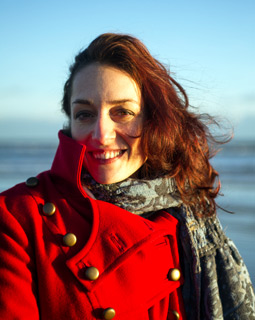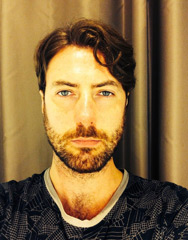The Artist as Entrepreneur: relationships between artists, society, markets and world economy
This module includes a series of lectures and hands-on group and individual activities to provide tools for working independently as a professional artist. It is designed to be non-site specific, offering information about the art world in different countries.
The module is borne out of the view that artists are professionals and should be treated as such by society, whilst themselves holding knowledge of practical matters such as rates of pay, fundraising for their practice, marketing, proposal writing and effective networking and interaction with the art world.
SCHEDULE
All sessions contain practical and hands-on techniques and exercises.
June 8th
morning
Guided tour to Cittadellarte, including the Pistoletto, Arte Povera collections and temporary exhibitions (curated by Luca Furlan)
Group presentation
afternoon
Being an Artist is a Profession
Introduction to the different roles and places of artists in society; the concept of artists as professionals. Work rights, concepts and ideas of being an artist in today’s economy.
June 9th
The Art World: Dynamics and mechanics
How does the art world works, and what is the relationship between artists, their ideas and their representation in the world’s art stage? An outline of the contemporary art world in different countries; different kinds of art scenes and different ways artists can interact with them.
June 10th
Can you live of art alone?
A practical session discussing ways in which artists can create a sustainable, independent career. Making a living through art; creating a workflow of funded projects; how to deal with institutions and collaborators; copyright issues; creating a self-employed practice; calculating your rate of pay; writing about art; budgeting.
Different aspects of fundraising from different sources; the landscape of funding in Europe and beyond; how to write an effective funding proposal; how to create a project budget; how to find sources of appropriate and relevant funding.
June 11th
Anatomy of an indie profession
What dynamics are at play between artists and today’s economy? A day with Richard Shields, articulated through two seminars aimed at generating a series of questions around artists-led change. An open discussion salon will create an impromptu platform to discuss the issues raised by the relationship between art and money.
morning
Introduction to Richard Shields’ artistic practice, including an overview of historical background and methodology, through examples of site-specific projects.
Case studies: the artworks Adeptness Indebted (2010 - 2012), The Journey Of the Artist And The Price Of The Ticket (participants are required to take notes throughout and ask questions at the end).
afternoon
Having been fully immersed in the world of debt activism and using the Situationist détournement method of turning a capitalist act against itself, the workshop will be a hands-on approach in turning debts into artistic commodities. Each participant will be encouraged to nominate one of their own debts in order to appropriate the ephemeral data/objects associated, as an art material, found object. Hypothetical Debt letters can be fabricated on the day if appropriate. The communications between a creditor and debtor can provide a wealth of literature and imagery, from corporate language to administrative graphics. The participants will then work on how they can use their material to create sellable art works that can be priced in order to eradicate the debt. Each participant will be given individual assistance in order to best produce a work that they can manage and confidently promote. The workshop aims at a better understanding of debt and offers creative means to eradicate the participants’ own.
June 12th
Lifeproofing for artists
The day will include personal and group activities in a final workshop to showcase, discuss and bring forward the issues raised during the week.
REFERENCES
The mentor will prepare a reader for participants with key texts, some of which will be discussed during the week.
Hans Abbing, Why are Artists Poor?: The Exceptional Economy of the Arts, Amsterdam University Press, 2007
Various Authors, Read This First, Growth and Development of Creative SME’s, Utrecht School of Art, 2007
Geert Lovink and Ned Rossiter, My Creativity Reared: A Critique of Creative Industry, Institute of Network Cultures, 2007
John Howkins, The Creative Economy, How people make money from Ideas, Penguin Books, 2001
Don Thompson, The $12 Million Stuffed Shark: The Curious Economics of Contemporary Art, Aurum Press, 2012
Alistair Gentry, Career Suicide, Ten Years as a Freerange Artist, Lulu Press, 2010
Websites
https://careersuicideblog.wordpress.com
http://richardshields.blogspot.co.uk
http://christbanksartcoffeetables.blogspot.co.uk
http://richardshields.blogspot.co.uk/2010/07/everything-is-purged-from-this-account.html

BIOGRAPHY AND STATEMENT
Emilia Telese is an artist based in Warwickshire, UK and working in London and Europe. Born in Italy, she graduated in Painting from Fine Arts Academy in Florence in 1996. She has exhibited worldwide since 1994, including in the New Forest Pavilion at the 51st Venice Biennale (Venice, Italy), Ars Electronica (Linz, Austria), ZKM (Karlsruhe, Germany), Chashama (New York City, USA), Centro Cultural Telemar (Rio De Janeiro, Brazil), Manege (St Petersburg, Russia), Leeds City Gallery, ArtSway (New Forest, UK) and the Freud Museum (London UK). Her work has been presented at major events at Tate Britain, Royal Festival Hall, and her practice includes socially engaged practice, interactive and body-responsive technology, film and live art, installation, literature and public art.
She was invited by Michelangelo Pistoletto to create an artwork for the first Rebirth-Day in 2012. Her video piece Life Begins At Land’s End was shown at the Louvre as part of his exhibition Michelangelo Pistoletto: Année 1 - Le Paradis Sur Terre in June 2013.
Often site specific, Telese’s work deals with conscious engagement, political and social debate, non-verbal communication and the questioning and deconstruction of behaviour.
She is a lecturer specialising in the relationship between art, economics and professional practice at more than ten UK and Italian institutions. She represented practising artists on the Arts Council England Regional Council until 2013. She has led nationwide debate events about art, politics and social engagements.
She is currently an AHRC award PhD researcher in Cultural Policy at the University of Warwick, with a Collaborative Doctorate Award three-year research project which will look at artist-led contributions to the cultural value agenda in order to develop theory, methods and policy insight.
Research interests:
Artist-led practice and cultural policy; Gesammkunstwerk or “total art”; the relationship between art and economics; the history of performance art; contemporary art and the role of the artist in society.
I believe that art should not provide answers, but instigate questions and change lives through continuous conversations with society. I seek to manifest the visual representation of these questions, and the deconstruction of society’s clichés. My work is concerned with challenging social constraints and conventions in as many ways as possible, using human nature, the body and technology as well as classic techniques.

GUEST
Richard Shields’ practice investigates varied contemporary issues through the use of the site specific, found objects and traditional skills. His pieces contain a duality between what is often seen as valuable permanence found in the process of drawing and mark making and the disposability of everyday encounters. Whilst producing contemporary works Shields looks to history both as an indicator and to contextualize events that occur in his own life and to the wider public. His past curatorial explorations in the site specific have seen him apply a range of media from oil paint to swimming pools, projectors and paper coffee cups. His topics of interest lie in financial posturing, religion and the autopsy of artistic process through an allegory with a sense of humour. Richard is Northern Irish and graduated from Manchester Metropolitan University, gaining a BA Hons in Fine Art Sculpture. He currently holds studio space in Manchester and writes for varies online publications.
http://richardshields.blogspot.it/
download the full documentation about the module and the mentor in PDF format
